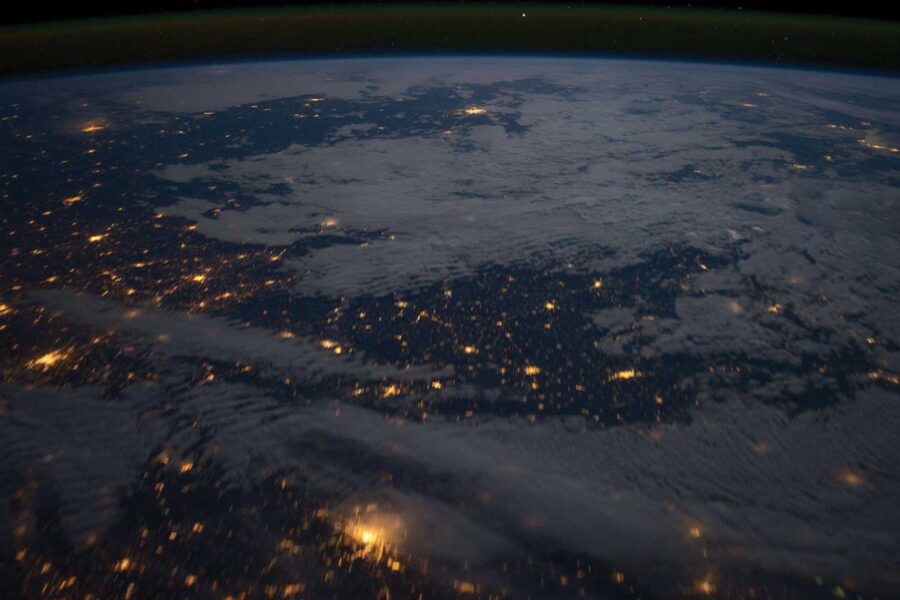Space exploration can serve as an antidote to war. And vice versa.

NASA
In October 2007 I attended celebrations in Moscow for the 50th anniversary of Sputnik 1. Space Age ironies were on full display. The festivities highlighted both the militaristic motivations that launched us off Earth, and the belief in an enlightened, unified human future that drove, and still drives, many involved in space exploration. Post-Soviet Russia, though experiencing upheavals, seemed plausibly on a path toward a peaceful, open society.
Several Russian scientists shared with me in private the traumas they’d lived through. Following the Soviet collapse, their research programs had been stretched thin, but they’d had, at least on paper, plans for bold new planetary missions. And in 2007 we made plans, at least on paper, to work together in exploring our common solar system.
Now, along with the cities of Ukraine, all that lies in ruins.
Among the many reasons I was drawn to space exploration was that it seemed to transcend earthly conflicts and to promise a future when, as seen from a distance, our planet would seem so obviously small and interconnected that a mature humanity would never return to deadly fights for perceived power over tiny patches of it. Yet here we are, watching wanton, cruel destruction unfold amid the renewed specter of nuclear annihilation.
From a cosmic perspective, geopolitics can seem pathetic and short-sighted. Even during the height of the Cold War, space scientists from both sides found ways to cooperate and assist each other’s missions.
In one example, Russian astrophysicist Iosif Shklovsky and American Carl Sagan (both of Ukrainian Jewish background) reached across the Iron Curtain to collaborate on the landmark 1966 book Intelligent Life in the Universe, which anticipated much contemporary thought in astrobiology and SETI. They acknowledged that high-tech war could be the reason why our galaxy isn’t full of chatter. Yet they also pictured civilizations maturing beyond our current “technological adolescence,” surmising that truly advanced societies would have long ago left behind such primitive, self-destructive practices.
As of this writing, Vladimir Putin’s army is committing unspeakable crimes, attacking cities and bombing hospitals and schools. These atrocities are unforgiveable. There will be no more talk of shared missions to the planets — not with this version of Russia. I fear for my Russian colleagues, good people caught up in a bad system.
As long as this MADness, this threat of mutual assured destruction, persists, I have to ask: Doesn’t that describe us all — good people caught up in a bad system? Why didn’t we get rid of our Dr. Strangelove machines during the post-Cold War thaw? Anyone who thinks it’s unrealistic to dispose of nuclear weapons entirely has to ask how realistic it is to think we could go on not using them ever again. If we are to survive to become the kind of galaxy-spanning civilization Shklovsky and Sagan dreamed of, we’ll have to find other ways to resolve our differences, and ways to keep sociopathic demagogues out of power.
I do think that humanity has a chance to live long and prosper, to seed a truly sustainable society that could eventually sprout throughout the galaxy. But right now, any ETs exploring our solar system, seeking new prospects for their galactic club of wise civilizations, would probably take a quick scan of Earth and keep on searching.
This article originally appeared in print in the July 2022 issue of Sky & Telescope. Subscribe to Sky & Telescope here.
 1
1
Comments
Gerald-Hanner
April 14, 2022 at 9:15 pm
The Putins of this world stifle any prospects of contact. If there are any prospectors out there they probably have decided to wait a bit longer to see how things develop.
You must be logged in to post a comment.
You must be logged in to post a comment.